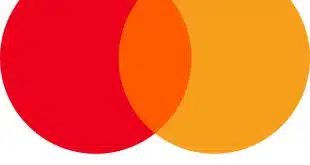Banking-services provider Fiserv Inc. announced on Monday a free widget that will let banks readily create a simplified bill-payment function on the so-called landing page of their online-banking sites. The widget, which starting some time in the second quarter will also enable person-to-person payments, is a piece of code that financial institutions that use Fiserv's CheckFree RXP online bill-payment service can integrate into their sites quickly. “It's hours, not days or weeks,” says Mary Beth Lawson, director of product management for electronic banking services at the Brookfield, Wis.-based company. The code will also be available through Fiserv's Corillian Online and eCom online-banking software products, the company says. The widget's key advantage, Fiserv says, is that it presents customers with online payment fields immediately after they log in. This is a departure from common practice, in which the payment function appears on the landing page only as one among several tabs, requiring further search and clicking, the company says. In this way, Lawson says the company hopes the widget will help boost adoption of online bill pay, which in turn could lead to increased customer loyalty and profitability. She cites a study showing that frequent bill-pay users?those who perform five or more transactions a month?are 95% less likely to leave their bank than the general population. They also generate 271% more in profits, according to the study. “With each and every bill payment, the likelihood to leave the bank went down and the profitability went up,” Lawson says. “That's what's driving things like the widget.” The study was conducted by Aspen Analytics in 2007 and 2008 using consumer data supplied by Fiserv and an unnamed large bank. Indeed, the idea for the widget came after Fiserv executives saw these studies and began thinking about how to increase online transactions. “The obvious answer was integration with the landing page,” Lawson notes. This in turn led to the concept of a product that “can be plopped right on the landing page. You don't have to have a lot of technical resources,” she says. For bill payments, the widget includes four fields, which ask for the biller's name, the pay date, the amount to be paid, and the funding account. After filling these in, customers click on a “make payment” button to complete the transaction. For person-to-person payments, the widget will ask for the payee's e-mail address or mobile-phone number. If the recipient is not registered, he will receive an e-mail or text message telling him he has money available and directing him to his online-banking site to sign up. Funds are transferred directly from the sender's demand-deposit account to that of the recipient. “The payment goes into your DDA account,” Lawson says. “These aren't holding accounts.” While competition has constrained banks from charging fees for online bill pay, Lawson says Fiserv will recommend that banks charge senders 50 cents per transaction for the person-to-person service, on the grounds that the service offers convenience consumers will pay for. “It's the first step in breaking that free barrier,” she says. Next up for the widget could be social-network payments, e-bills, and same-day transfers. Lawson says so-called expedited or last-minute payments?in which banks transfer money to billers the same day in return for fees–will come to the widget, but the company has not yet determined when. Meanwhile, the idea of a widget allowing users to make payments from within social networks is something Fiserv will likely study later this year, though no test is planned. This market will require careful study, Lawson says. While the market includes many consumers who say they're interested in having a payments widget, “saying you're interested and actually using it are quite different,” she notes.
Check Also
MoneyGram Adds Mastercard Move for Cross-Border Payments
MoneyGram International Inc. said it will adopt Mastercard Move, the card network’s cross-border money-transfer application. …





